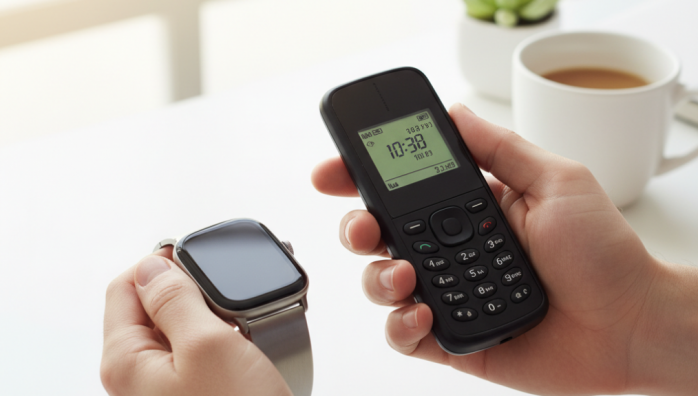Why I Ditched My Smartwatch for a 'Dumb' Phone (and What Happened)
by admin in Productivity & Tools 144 - Last Update November 16, 2025

I used to be obsessed with my smartwatch. It was my fitness coach, my personal assistant, and my window to the digital world, all strapped to my wrist. But after a couple of years, I realized something unsettling: I wasn\'t in control. The constant buzzing, the endless stream of notifications, and the pressure to \'close my rings\' were running my day. It felt less like a tool and more like a tiny, demanding boss I couldn\'t escape. My \'aha\' moment came during a family dinner when I instinctively glanced at my wrist three times in five minutes for notifications that didn\'t matter. That\'s when I decided to try a radical experiment in digital minimalism.
The promise of connection became a prison of distraction
Honestly, the initial appeal of a smartwatch is powerful. You feel connected, efficient, and on top of your health. But for me, this hyper-awareness backfired. Every email, every message, every news alert demanded a sliver of my attention. My focus at work was shattered into a hundred tiny pieces. I was mistaking constant activity for actual productivity. The data was overwhelming; I was tracking my sleep so much that worrying about the stats was ironically keeping me awake. I had to admit that the tool designed to optimize my life was actually diminishing its quality.
Making the switch: The first week was weirdly quiet
I bought a basic \'dumb\' phone—one that only makes calls and sends texts. The first few days were a lesson in phantom limb syndrome. I\'d constantly raise my wrist to check the time or a non-existent notification. The silence was jarring. I felt a genuine, albeit irrational, fear of missing out. What if there was an urgent work message? What if I missed an important update? The truth is, nothing I missed was ever that important. After about a week, the anxiety started to fade, replaced by a strange sense of calm. I was no longer reacting to my technology; I was choosing when to engage with it.
What actually happened: The unexpected gains from disconnecting
Ditching my smartwatch didn\'t just remove a source of distraction; it fundamentally changed my daily habits and mindset. The results were more profound than I ever anticipated.
My ability to deep focus returned
Without the constant digital taps on my wrist, I found I could sink into complex tasks for hours at a time. The mental quiet allowed for deeper thinking and more creative problem-solving. It\'s something I hadn\'t experienced in years, and the quality of my work improved dramatically.
I became more present with people
In conversations, I was fully there. I wasn\'t half-listening while my brain processed the last notification. This was the biggest and most rewarding change. My relationships felt more meaningful because I was giving people my undivided attention, something that has become incredibly rare.
Boredom became a catalyst for creativity
Waiting in line or sitting in a waiting room used to be an opportunity to scroll. Now, with just a simple phone, I let my mind wander. These moments of \'boredom\' led to new ideas and a chance to simply observe the world around me. It felt like stretching a mental muscle I\'d let atrophy.
In the end, this wasn\'t about rejecting technology. It was about reclaiming my intention. I still use a smartphone for navigation or banking, but I keep it in my bag, out of sight. The \'dumb\' phone handles my immediate communication needs. This experiment taught me a crucial lesson: the most advanced productivity tool isn\'t a device, but a focused, uncluttered mind. And sometimes, the best way to achieve that is by choosing less.














